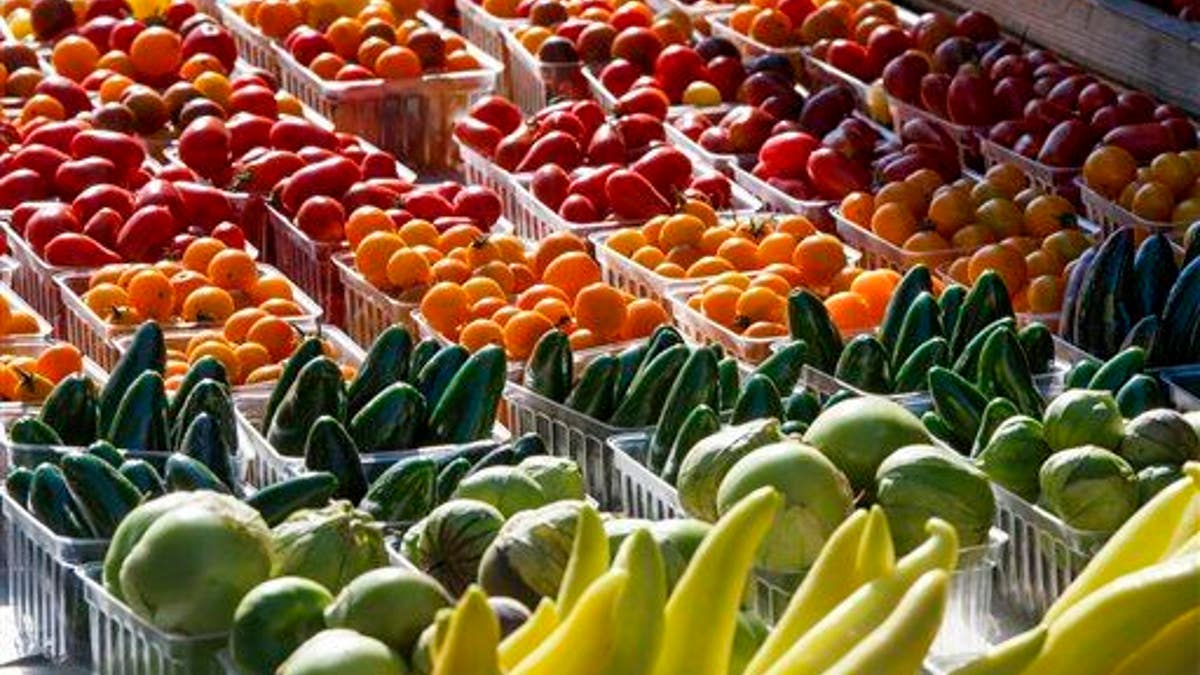
Fresh-picked tomatoes, cucumbers and other summer garden vegetables are displayed for sale at a farmers market in Falls Church, Va., Saturday, Aug. 8, 2015. (AP Photo/J. Scott Applewhite)
"It appears that nutrition plays a role both in triggering the disease and why it progresses." So says the lead researcher of a study out of Columbia University that per a press release is "among the first" to look at the interplay between diet and ALS near the time of diagnosis.
Progression of the severe neurological disorder—which is characterized by atrophy, then paralysis, and ultimately respiratory failure—is typically quick, with the median survival range just 20 to 48 months.
But in terms of its progress, new research published in the journal JAMA Neurology finds that fruits and vegetables high in antioxidant nutrients and carotenoids are linked to higher ALS function.
As such, lead researcher Jeri Nieves recommends ALS patients "eat foods high in antioxidants and carotenes, as well as high fiber grains, fish, and poultry." He notes that these foods and nutrients have also been shown to help prevent many other chronic diseases, while admitting that the study relied on a food questionnaire, so the patients' answers don't necessarily represent actual dietary intake.
More From Newser
Foods to potentially avoid? Milk and deli meat, which were linked to lower ALS function. Nature World News reports that the researchers studied 302 patients who'd been diagnosed within the previous 18 months.
This article originally appeared on Newser: Fruits, Veggies May Help Slow ALS








































